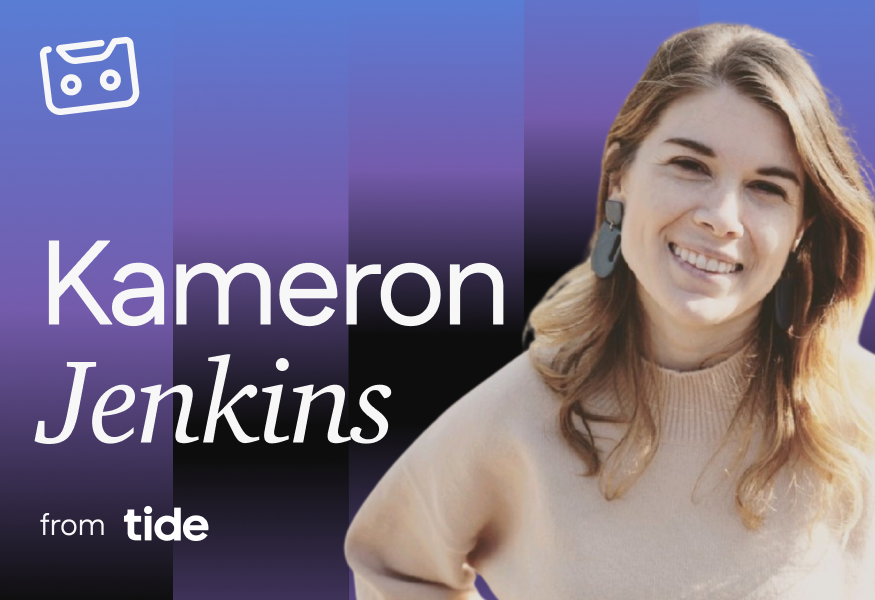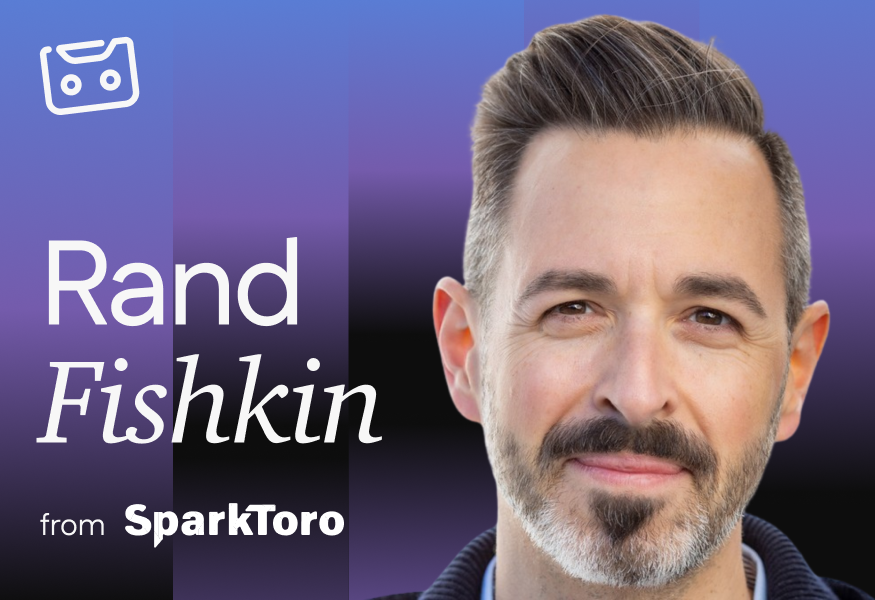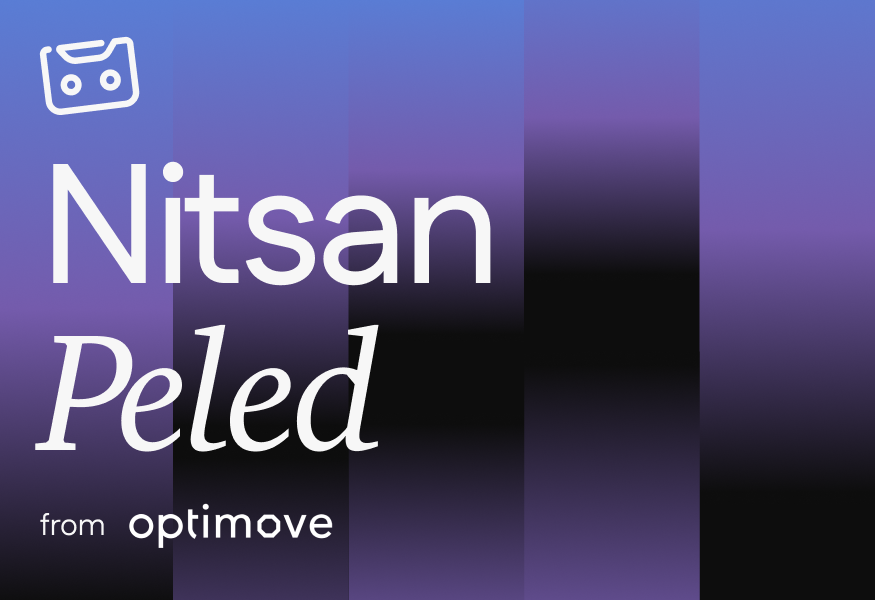When Shopify’s Kameron Jenkins agreed to join Tom for episode five of Maker Mixtapes, he was keen to get into her content marketing approach at Shopify. But as is so often the case with these conversations, the chat turned into so much more.
As well as being a brilliant content strategist, Kameron is also an SEO wordsmith who’s created content for Moz and Search Engine Journal, as well as a brand marketing expert who helped Botify increase its organic search traffic by 211%.
And to get to talk about her career journey made for some great takeaways around becoming a marketing leader during a time she thought it wasn’t for her, working with freelancers, planning content, sharing knowledge, and nerding out over Airtable. All of which we’ll get into in this post.
This is a great one for anyone looking to start or further their career in marketing.
Find out if you like a career path by trying it
Something that’s become a recurring theme on Maker Mixtapes is agency life. Most of the people we’ve chatted with started their careers working and learning in agencies before departing for greener pastures. Kameron was no different.
However, where people typically move on after around two years, Kameron stuck around for six-and-a-half years. By joining an agency in its early stages and growing with it over the years, she was able to get opportunities she may not have got elsewhere:
“When I was hired, I was employee number 50. And so I was able to, fortunately, grow with the company. It didn't take long and I found myself as one of the more senior SEO and content people. So I was able to lead the team that way, growing with the company and adding people under me.
“It was kind of nice, being able to leverage my time at that company into leadership opportunities.”
Managing a team at an agency gave Kameron the skills to go on to lead teams at Botify and Shopify. Had she not been given the opportunity early on in her career, she may never have taken on such a role:
“One of the things that I learned that I didn't expect was that someone like me could be in a leadership position.
“I think we all have, or most of us have, a stereotype of what a team lead is or what a boss or a manager is. And I just didn't peg myself as someone that would do that. I see myself more as a head-down kind of worker, and I could do the job really well.
“But I think being given those leadership opportunities allowed me to see that, ‘Oh, hey, like, it doesn't just look one way. I'm a good listener, I'm a good advocate, I can actually be a good lead and enjoy it, too.’”
If you’re in a similar position, wondering whether leadership is for you, Kameron has some solid advice:
“If you're not sure if you're ready for leadership or if you want to do that, I would say the best way to get into that and learn is try it. Try it, and you might enjoy it. You might find that you're really good at it.”
Focus on tasks that suit your strengths and delegate the rest
If you’re launching a startup or running a small company, it’s natural to want to be hands-on with every task. But, as Kameron found out, doing too many things at once—even if you’re skilled at both—isn’t always the best approach:
“In the times that I was doing both strategy and execution I felt like I wasn't doing either well. So I think just deciding, ‘I'm going to stick to this one thing and delegate the rest’ is the smart way to go.”
Working with her CMO at Shopify, Kameron builds teams by identifying which roles need to be filled and bringing in specialist freelancers to do the work:
“For us, it’s very much just about, ‘Okay, what do I need you for?’ And then whatever you don't have time for let's hire someone to fill that gap.”
“If [the CMO] wanted me to do strategy and more higher-level stuff like managing our freelance design agency and our freelance PR agency that we were working with at the time, anything else, like the day-to-day writing, I didn't have time for. So we knew then, ‘Okay, let's hire a copywriter.’”
Outsourcing to experts can be costly in the early days of a startup. But look at it as an investment. Getting work done to a high standard whilst freeing up time to focus on your strengths benefits the present and future of your business.
Get into the mind of customers by listening and learning
It’s easy to assume that a platform as big as Shopify has an unattainable content strategy. In the retail and Shopify Plus division (where Kameron and her team operate), the approach is straightforward:
“[It’s] about getting the sustained evergreen traffic and flow of people to know about Shopify. And also to get [retail store owners], hopefully, to become merchants.”
There are no magic solutions for coming up with the right topics:
“[I do] a lot of research learning. [For example], the topics that are discussed in the retail industry [and] what retail store owners want to know and be inspired by.
“If you look at the search volume around these topics. And you see, ‘Oh, they're also asking questions about how do I design my layout? What is lighting supposed to look like in my store? How do I optimise my aisles for maximum purchases?’ All of the stuff.
“I'm like, ‘Oh, I'm really getting into the mind of retail store owners through the process of doing keyword research, which benefits me because it helps me build out my [editorial] calendar.
“So that's kind of the process. Learning for myself and learning what [customers] want to know as well.”
When conducting keyword research, Kameron tapped into existing data:
“You have to type something into a keyword research tool in order to get information back, whether that's a competitor site or a particular keyword to get more keyword ideas.
“And so the input I used for that was listening to calls [and] listening to internal podcasts at Shopify to help learn more about different aspects of the business. I [also] talked to our merchant success managers who have direct contact with our merchants.
“Learning from them what those conversations were helped to not only feed my keyword research, knowing what I needed to look for, but it also helped me learn how they talk, learn what they look for, and all that type of thing.”
This strategy and approach to generating ideas is something that any business can do, regardless of your level or niche. Listen to and learn from your customers:
- Look at how they use your website
- Find the problems they’re dealing with by running surveys or talking to your customer service teams
- Learn how they talk through social listening
Use existing information to target the right keywords and create continually relevant content.
Plan distribution around content goals
Not every piece of content is created for the same purpose. For example, a blog post may be created to raise awareness, whereas an ebook may be created to encourage sign-ups.
It’s because of this that Kameron avoids any kind of blanket distribution strategy:
“[Distribution] totally depends on what the goal of each piece of content is.
“Any piece that I have slotted for, ‘Hey, we want to target this query [or] we want to answer this question that people are searching.’ we measure that way as well. That's our distribution strategy. So our goal, obviously, is getting traffic from Google organic sustained over time, and Google is our distribution network there.
“But that being said, That's not to say we can't also repurpose and use our newsletter to distribute [content].
“[For example], we have our demand gen team. We work with them closely to see if there are ever any opportunities to promote specifically gated content.
“[Say] we have a new study [or] we have a new download that we would like to reach more people with — those aren't always the best for organic search distribution. So we work with the ad team to see what channels would work best and promote them there as well.”
When creating any new piece of content, think about what you want it to do, then look at which channels are best placed to help you achieve your goals.
It takes little effort to share your knowledge
As well as helping to elevate the brands she works with, Kameron has been successful in building her personal brand by sharing her knowledge on Twitter, where her SEO-related tweets generate high engagement.
Her approach to Twitter is inspired by a post she saw online.
“They were like, ‘Hey, it takes very little to no effort to just share your knowledge. And best-case scenario, you get a lot of new people in your network. You get people who know more about you. It can present new job opportunities in the future. It's just good in general. Build a network around you. Like why not? You know, whether you do something with it or not, why not do it?’”
Kameron took that inspiration and ran with it.
“I kind of made it a personal challenge a couple of months ago, just to try to share at least one thing every day. And that's really my strategy. It's usually things come up throughout the week, or I'll just, you know, be sitting around and something pops into my head.
“Inspiration does not strike every day. So I use the scheduled post feature a lot of the time. So I might have like three ideas in one day, I'll schedule them all out. So I don't use them all up in one day.
“But I try to just be consistent because it's a personal challenge to myself. And I always appreciate when I see people sharing their knowledge. So I'm kind of trying to pay it forward in that way to like, ‘Hey, maybe not everyone knows this stuff. And someone asked it of me this week, so I might as well tell everyone.’”
It’s a refreshing way of approaching social media that all of us can adopt.
Share your knowledge If it makes a difference to even one person, it’s worth it.
Airtable is a wonderful thing
Airtable is a cloud collaboration platform designed to help you customise workflows and manage teams to keep everything running smoothly.
We’re huge fans of the platform at Grizzle, and something Kameron uses to great effect to manage freelancers and content at Shopify:
On managing freelancers:
“[Airtable] makes it really easy to automate a lot of the workflow so that there's not stuff that's lost in between the cracks.
“[Once I had] freelancers onboarded, I have a whole onboarding dock for them. So they can learn about Shopify and our audience and what we expect and all of that stuff. Then I added them in Airtable [and] assigned them content.
“[Now], every time, for example, something gets moved to drop, ready for review, I automatically get an email. Every time something needs to go to our editor, it automatically emails our editor when they switch the status.
“[It] makes it impossible almost to miss something, which is great.”
On managing content:
“Airtable is what I use currently for my editorial calendar. But that also is just one side of the coin. The other side is it feeds into what I'm calling my ‘content library’ or ‘asset inventory’.
“Anytime the status of something is changed to published, it doesn't go away. And I think that's a big difference between this, and a lot of other editorial calendars, which are like, ‘Okay, it's done, it's over with.’. But now it's in this inventory.
“Once something's in your inventory, you can go in and sort and filter and find what you need really easily.
“[Then you can] direct [colleagues] to Airtable. Because anything you've published is going to live in there. And it's going to be super easy for them to sort and filter and find on their own.”
“The [other thing] I really love is the integration with Slack. One of the things I use it for is, anytime something is published, I have it update one of our channels so that everyone can kind of know we're doing cool stuff, like ‘Here's the newest thing we've published.’
“That's been great for getting, external, non-content marketers excited about the work that we're doing. Because they see it happening in real-time.”
If you’re managing a remote team or creating a lot of content, Airtable is well worth checking out.
Meet the makers
Maker Mixtapes is a podcast about the entrepreneurs, creators, and marketers building impressive things in their field. From content marketing to YouTube and growth, agency life to e-commerce and SaaS, this podcast aims to dissect and share lessons from their success.
Listen to Kameron and other episodes from the brightest minds in tech and business on Spotify or Apple Podcasts.












